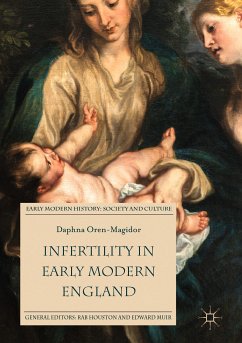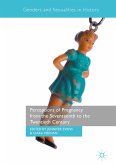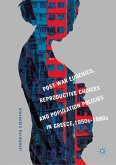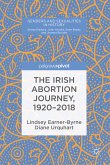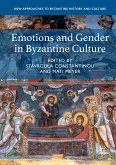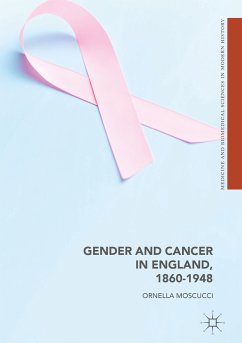Dieser Download kann aus rechtlichen Gründen nur mit Rechnungsadresse in A, B, BG, CY, CZ, D, DK, EW, E, FIN, F, GR, HR, H, IRL, I, LT, L, LR, M, NL, PL, P, R, S, SLO, SK ausgeliefert werden.
Hinweis: Dieser Artikel kann nur an eine deutsche Lieferadresse ausgeliefert werden.
"Infertility in Early Modern England explores the ways in which religion, medicine and gender interacted to define the experiences of childlessness for both men and women and holds that the presence of widespread negative attitudes surrounding infertility reflected contemporary fears of an upended social order. ... Infertility in Early Modern England convincingly establishes that infertility deserves more thoughtful treatment than it currently receives from scholars, and this book is an important step in that direction." (Erin Johnson, Origins, origins.osu.edu, April 17, 2019)
"Oren-Magidor's most important contribution may be that infertility upset the social order as much as sexual transgression or illegitimacy. ... This study also illuminates the extent to which medicine and religion were intertwined in early modern society. ... Oren-Magidor has produced a finely crafted study that provides a much needed re-centering of infertility and the struggles men and women confronted in order to have children in discussions of early modern reproductive practices." (Jennifer F. Kosmin, Journal of the History of Medicine and Allied Sciences, Vol. 73 (3), July, 2018)
"This book effectively demonstrates the duality of medical and religious ways of understanding and articulating infertility ... Her work contributes to a growing body of literature that seeks to situate the social history of medicine within a social, cultural, and emotional narrative. ... In offering a new perspective on infertility in early modern England, this book contributes to the rapidly expanding body of scholarship on (in)fertility, conception, and reproduction across early modern Europe." (Sarah Fox, H-Histsex, H-Net Reviews, March 2018)
"Oren-Magidor has collected information from a wide range of sources which together provide a well-balanced picture of the impact of infertility in early modern society. ... Infertility in Early Modern England is engaging and well written; it contains much interesting and useful detail and it will provide worthwhile reading for all students of early modern social history." (Chris Galley, Local Population Studies, Issue 100, 2018)

